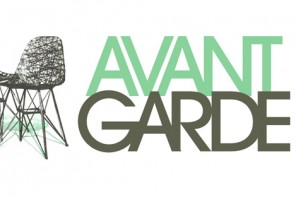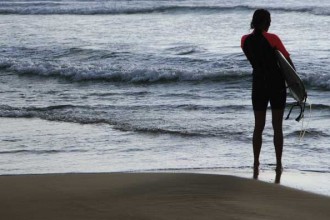Imagine an ocean without fish. Imagine your meals without seafood. Imagine the global consequences. This is the future if we do not stop, think and act.
Last night I went to a documentary film called The End of the Line, which looks at the devastating effects of overfishing, at the Labia in Cape Town. The documentary was part of an eco film festival organised by While you were Sleeping and the UCT Green Campus Initiative.
In a nutshell I walked out of the theatre never wanting to eat another fish in my lifetime… a real wake-up call. The film explored the notion that in 30-40 years time we may have no fish left in our seas due to the gross overfishing that is currently taking place all over the world.
The film showed how countries and their fishermen are blatantly ignoring the rules and fishing quotas set out by the various Government´s of the world and are obtaining catches sometimes 6 times over the legal limit. Not to mention the immensely destructive techniques they are using to catch these fish such as trawling. Trawling is basically when a boat uses a net behind it which it drags across the ocean floor and basically ´mows over´ everything in sight thereby destroying the ocean´s beds and all it´s lifeforms. Some trawling nets are large enough to fit 12 Boeing 747´s inside them which gives you a good idea of the magnitude of destruction currently taking place. Hi-tech fishing vessels leave no escape routes for fish populations.
The film also examines the imminent extinction of bluefin tuna, brought on by the increasing western demand for sushi. Extinction of one species has major effects on the ocean´s ecosystem. The result is that certain species are no longer threatened by predators and therefore overpopulate hence the current huge overpopulation of jellyfish. It also looks at the profound implications of a future world with no fish that would bring certain mass starvation.
And the rich get richer…
Another really scary reality is how some developed nations are trading fishing rights with certain third world, coastal countries such as Senegal. The film interviews a traditional, Senegalese fisherman who has seen the ocean´s fish stocks change right before his very own eyes. His father and his father´s father were fishermen and they used to catch hundreds of fish a day and could make a decent living from fishing and provide their families with a sustainable lifestyle. Now his catches result in maybe 3-4 fish per day due to the fact that big companies are fishing in developing countries waters and in a word, ´raping´ their seas. The consequence – he must cross continents in order to make a living for his family to survive. But as he so candidly put it “they are happy to take our fish but not so happy to have us. Our fish need no visa but people they are turned away“.
One country that seems to have got it right is Alaska. They limit the time that people can fish on the waters for and the areas in which they can fish and the outcome is that their fish reserves currently seem to be healthy… for now.
Farming as a solution
Fish farming as a solution to this problem is a myth. Did you know that they actually catch ´wild fish´ such as sardines to feed the farmed fish so this is by no means helping the situation as it still results in fish being removed from the oceans in huge quantities.
The end of seafood by 2048
Scientists predict that if we continue fishing as we are now, we will see the end of most seafood by 2048. The movie chronicles how demand for cod off the coast of Newfoundland in the early 1990s led to the decimation of the most abundant cod population in the world not to mention how that simultaneously destroyed a community.
So, what is the solution?
The film lays the responsibility squarely on consumers who innocently buy endangered fish, politicians who ignore the advice and pleas of scientists, fishermen who break quotas and fish illegally, and the global fishing industry that is slow to react to an impending disaster.
At one part in the film, one journalist asks Nobu Restaurant in New York how they can still be selling an endangered fish on their menu. Their reply, “well we made an asterix saying it was an endangered species…”. As this journalist rightly points out, what if one came across a menu serving lion, tiger or gorilla? People would be outraged, there would be blood on the streets so why is this not so when it comes to seafood?
The End of the Line points to solutions that are simple and doable, but political will and activism are crucial to solve this international problem.
We need to control fishing by reducing the number of fishing boats across the world, protect large areas of the ocean through a network of marine reserves off limits to fishing, and educate consumers that they have a choice by purchasing fish from independently certified sustainable fisheries.
It is ultimately up to US to make a difference. Don´t be afraid to ask questions about where your fish came from, spread the word and make informed decisions when it comes to buying and eating fish. The longer we remain quiet about this problem the worse it gets until one day you may just be ordering a jelly fish burger at your local Ocean Basket.
Watch the clip below to see a preview of the movie.
The End of the Line will be in Nu Metro theatres from 18 October 2010.
Nics
x




